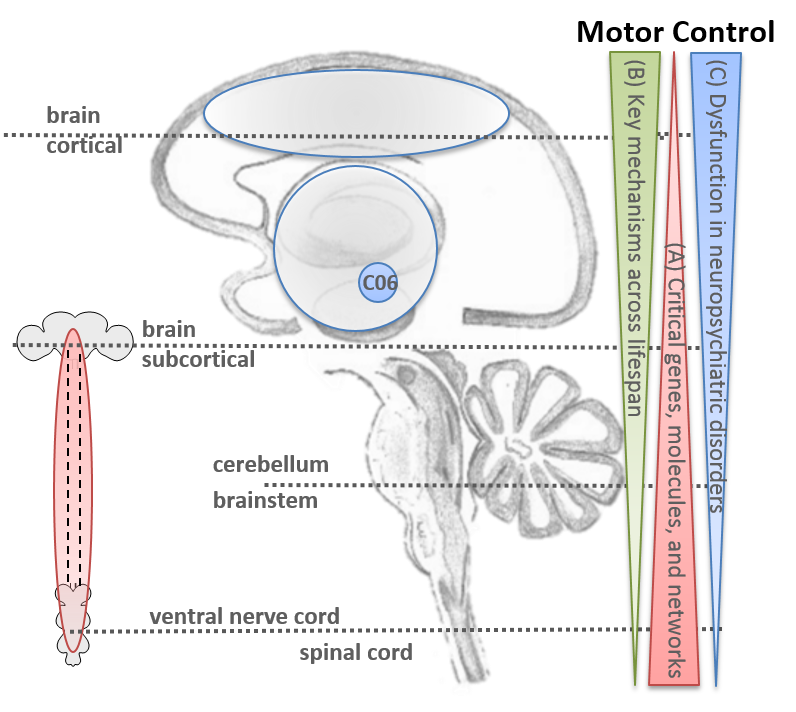Project C06
Major depression as a transient functional lesion model of motor control
©Shutterstock

This project aims at (i) scrutinising the neural substrates of motor control when these are affected by internal states, and (ii) exploring how primary sympathetic effectors affect motor control circuits. Task-based fMRI analyses of effective connectivity in humans will be employed to generate model-based computational indices of neural network function of motor control and reward processing. These models are then used to test for individual expressions of motor function and their modulation by standardised pro-dopaminergic treatment as well as inflammation.

©MedizinFotoKöln
Prof. Dr. Frank Jessen
Principal Investigator

©MedizinFotoKöln
Prof. Dr. Marc Tittgemeyer
Principal Investigator

©MedizinFotoKöln
Lionel Rigoux
Postdoc

Dr. Anna Schönberger
Clinician Scientist

©MedizinFotoKöln
Dr. Philip Zeyen
Clinician Scientist
